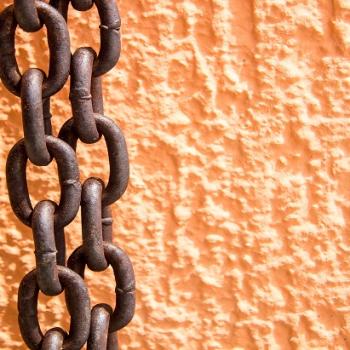I recently reread a portion of 1 Samuel and came across the part where King Saul demands the slaughter of Nob, a nearby city. The whole passage comes across as a warning sign that Saul had gone completely paranoid. How unstable do you have to be, to order the slaughter of a city filled with God’s priests?
David’s “Little White Lie”
This mess starts with David, on the run from the mad king, entering Nob to seek help in 1 Samuel 21. When David speaks with Ahimelech, he refuses to tell the priest the truth about Saul’s pursuit. Instead, David gives this fib:
“David answered Ahimelech the priest, ‘The king sent me on a mission and said to me, ‘No one is to know anything about the mission I am sending you on.’ As for my men, I have told them to meet me at a certain place.” (1 Samuel 21:2-3)
David should’ve told Ahimelech something more honest, such as, “While I can’t tell you everything, I can tell you that my life is in danger, and I need your help.”
While David didn’t know it at the time, his little lie to Ahimelech would indirectly lead to King Saul’s genocide of Nob.
Doeg’s Treachery
1 Samuel 21 offers a sinister bit of foreshadowing by mentioning this in 21:7:
“Now one of Saul’s servants was there that day, detained before the Lord; he was Doeg the Edomite, Saul’s chief shepherd.” (1 Samuel 21:7)
Doeg the Edomite is the treacherous man who overheard David and Ahimelech’s conversation. He took this information back to King Saul and sealed the doom of Nob with what he shared.
Reading the phrase “detained before the Lord” threw me off. I found a commentary on this verse on Bible Hub, which I highly recommend reading. Bible Hub‘s commentary suggests that Doeg was in Nob for a variety of reasons. These included purification, preparation for religious vows, or a sacrifice of atonement.
Bible Hub‘s commentary notes that right after Doeg gets mentioned, David asks Ahimelech for Goliath’s sword. They suggest that David saw Doeg, a notable servant of King Saul, and panicked accordingly. I believe it!
Saul’s Paranoia
While sitting under a tamarisk tree, King Saul rails against his surrounding servants (1 Samuel 22:6-8). Of note, he refers to them as the “people of Benjamin”, which is significant because he was a member of that tribe. Saul accused his fellow tribespeople and servants of being disloyal and conspiring with David against him.
The verse here that particularly made me grimace was 1 Samuel 22:8, where he rants that David is “lying in wait”:
“‘Is that why you have all conspired against me? No one tells me when my son makes a covenant with the son of Jesse. None of you is concerned about me or tells me that my son has incited my servant to lie in wait for me, as he does today.'” (1 Samul 22:8)
Saul has become so deranged and paranoid at this point that he’s accusing his son, Jonathan, of encouraging David to plot Saul’s death. Not only that, but he’s accusing David of his own sin, plotting the other’s death. In his madness, Saul refuses to admit that he’s the aggressor.
Doeg’s Incitement
Right after Saul’s rant, Doeg chimes in and tells the King about David and Ahimelech’s talk. Oddly, Doeg adds that Ahimelech “inquired of the Lord for him” (1 Samuel 22:9), which wasn’t mentioned in the earlier passage. Either Doeg was mistaken or was outright lying.
Upon hearing this, Saul demands that Ahimelech and all the priests of Nob come to his location. They oblige, and when Ahimelech comes face-to-face with Saul, the mad king accuses the priest of treachery:
“Saul said to him, ‘Why have you conspired against me, you and the son of Jesse, giving him bread and a sword and inquiring of God for him, so that he has rebelled against me and lies in wait for me, as he does today?'” (1 Samuel 22:13)
Saul should’ve asked to confirm what Doeg told him. Instead, he chose to go off on what would now be called hearsay.
This is how Ahimelech responded to these accusations:
“Ahimelech answered the king, ‘Who of all your servants is as loyal as David, the king’s son-in-law, captain of your bodyguard and highly respected in your household? Was that day the first time I inquired of God for him? Of course not! Let not the king accuse your servant or any of his father’s family, for your servant knows nothing at all about this whole affair.'” (1 Samuel 22:14-15)
I’m rereading this part, and I’m a bit more confused. So, did Doeg lie about Ahimelech inquiring of God for David? It sounds to me like Ahimelech actually affirmed this part.
Ahimelech truly had no idea what King Saul was talking about. But Saul’s hardened heart was set on destruction. He declared that Ahimelech and the rest of his father’s house would die (1 Samuel 22:16).
The Slaughter of Nob
I hate reading this part.
Once Saul declared death against God’s priests, he ordered his soldiers to kill them. They all refused, horrified that their king wanted them to murder men of God.
When he saw that they wouldn’t budge, Saul ordered Doeg to kill them. Doeg gleefully obliged.
The text notes that Doeg murdered 85 priests himself (1 Samuel 22:18). But he didn’t stop there. Doeg traveled back to the city of Nob and wiped out the entire town, down to the last child (1 Samuel 22:19).
One of Ahimelech’s sons, Abiathar, escaped the slaughter and found David. David’s heart broke when Abiathar told him what King Saul had done to Nob and his family.
This is David’s response to Abiathar’s message:
“Then David said to Abiathar, ‘That day, when Doeg the Edomite was there, I knew he would be sure to tell Saul. I am responsible for the death of your whole family. Stay with me; don’t be afraid. The man who wants to kill you is trying to kill me too. You will be safe with me.'” (1 Samuel 22:22-23)
To be fair to David, I don’t think he could’ve predicted Saul’s horrific response to Ahimelech helping him. Even then, it’s clear that David rightly regretted not speaking more honestly when he had the chance.
Final Thoughts
In these passages, King Saul reminds me of Nabal, the brash husband of Abigail (one of David’s wives). So much brashness and no room for diplomatic reasoning.
David should’ve been more honest and upfront with Ahimelech. If he’d told the priest the truth, there’s a possibility that Nob wouldn’t have perished.
It alarms me that Saul chose to project his own transgressions onto David. Either he was outright lying to his men, or he truly believed that it was David who sought to end his life.
In later passages, David repeatedly clarifies to Saul that he doesn’t want to hurt him. While this mercy initially humbled Sault, he continued to seek David’s death.
Saul effectively threw away his anointing to the throne. He had only himself to blame for his pride and paranoia. May he serve as a somber example to us all of what can happen when we trust our faulty perceptions of reality.
Featured Image by happymom33/Pixabay
Hello, and thank you for supporting my work here on Patheos! If you’d like to support me further, please feel free to “Buy Me A Coffee” here:












